Last updated on July 29, 2024
Are you considering starting a recovery coach business? The recovery coaching niche is thriving, which can open numerous opportunities for a rewarding and impactful career.
Today, we’ll delve into everything you need to know to succeed as a recovery coach in this dynamic landscape, including the most crucial step—obtaining a recovery coach certification. The right training program can provide you with a structured learning trajectory and reputable certification, so you’ll want to make sure that you make an informed decision.
- IAPRC – Best Overall
- The Academy for Addiction Professionals – Best for Beginners
- Recovery Coach University – Best for Workshop Type Training
- World Coach Institute – Best for Business Development
- Transformation Academy – Best Budget Option
Table of Contents
What Is a Recovery Coach?
A recovery coach is a life coach who has specialized in supporting clients who are navigating addiction recovery or who are recovering from other major life incidents. They offer a unique blend of support, guidance, and personalized strategies to help clients overcome the challenges of addiction, heal from trauma, and process and move forward after setbacks. Through coaching sessions, clients learn how to build resilience and develop healthy coping mechanisms.
Recovery coaches are commonly associated with drug, alcohol, and substance addictions, and while these are the most common areas of focus, their expertise can extend beyond addiction. Sub-niches in recovery coaching include trauma recovery, divorce recovery, codependency recovery, and narcissistic abuse recovery.
What Is the Difference Between a Recovery Coach and a Therapist?
The primary difference between a recovery coach and a therapist is the education requirements. Licensed therapists need to have a counseling degree and specialize in addiction therapy.
Recovery coaches, on the other hand, don’t need a degree or certification to provide their services. They often draw from their own personal recovery experiences and combine that with coaching techniques to guide individuals toward a life without addiction.
Recovery coaches use a non-clinical approach to help clients achieve long-term recovery, while therapists employ various therapeutic techniques and interventions. Therapists delve deeper into the underlying psychological and emotional aspects of addiction, and recovery coaches focus on accountability and action.
These two types of professionals can complement each other in supporting individuals through recovery, with recovery coaches providing practical guidance and support and therapists assisting with specialized therapeutic interventions and clinical expertise.
How To Become a Recovery Coach
There are no specific requirements to be a recovery coach. You don’t need a certification or any degree. However, since you’ll be working with vulnerable individuals, clients often have expectations of seeing some credentials, as this adds to their sense of reassurance and confidence in the support they receive.
Certification will ensure that you possess both practical expertise and a well-informed understanding of the scientific foundations and best practices in addiction care. By combining personal experience with professional qualifications, you can offer a comprehensive and credible approach to guiding people through recovery.
Factors to Consider When Choosing a Recovery Coach Certification
Navigating the options for recovery coach certifications requires careful consideration of several key factors, so let’s see what they are.
Program Cost
Do you have a budgetary plan for investing in recovery coach certification? This can be a great starting point in your search process. The cost of these programs varies greatly, so you can narrow down your choices based on financial feasibility. What typically influences the price tag is the duration of the course, mentorship, and whether it is an online or in-person course.
Course Length
A course can last a couple of days, weeks, or months and can include scheduled classes or individual study. Since many individuals who pursue this path have other commitments like full-time jobs or busy family lives, self-paced courses have gained popularity as a convenient option for those unable to attend scheduled training.
Accreditation
Certifications accredited by the globally recognized International Coaching Federation (ICF) or other reputable institutions can enhance your recognition. In the realm of recovery coaching, you can also seek accreditation from addiction-specific entities such as the National Association for Alcoholism and Drug Abuse Counselors (NAADAC). However, accreditation isn’t mandatory; it simply signifies that the program respects the guidelines and standards set by the issuing body.
Best Recovery Coach Certification Program
Top Pick: International Association of Professional Recovery Coaches (IAPRC)
The International Association of Professional Recovery Coaches (IAPRC) is an international training and credentialing organization that offers accredited training hours for ICF, NAADAC, and the Florida Department of Health Licensure Board.

This is our top selection due to its reputable accreditation and variety of certification programs that accommodate both aspiring coaches and experienced professionals. When it comes to recovery coaching, the following certification programs are available:
- Certified Professional Recovery Coach Dual Program – includes Professional Coach Certification (CPC/Life Coaching) and Certified Professional Recovery Coach (CPRC) Certification for a specialty in addiction recovery
- Certified Professional Recovery Coach (CPRC) Program – well-suited for coaches with experience seeking a specialty in addiction recovery
Both programs blend self-paced learning and live online practice with fellow students and a master coach. You will also receive free membership in iCoachRecovery for 18 months, access to their exclusive forums, and a graduate listing in their online recovery coach directory.
- Course Length: Self-paced
- Program Cost: CPRC dual program – $5,097; CPRC program – $4,497
- Accreditation: ICF, NAADAC, Florida Department of Health Licensure Board
- Mode of Delivery: Online
Beginner Option: The Academy for Addiction Professionals
The Academy for Addiction Professionals has several certification courses and professional development programs, and one of them is designed to aid you in recovery coach training. This course can be an ideal choice for beginners due to its comprehensive coverage of recovery and coaching foundations.

Through the Recovery Coach Training program, you’ll learn about foundational principles of addiction and its treatment, the recovery process, and coaching skills such as motivational interviewing, self-discovery, creating an ACTion plan, and more. The program will also cover ethics and boundaries in this field, cultural competence, and self-care.
- Course Length: 30 hours
- Program Cost: Available upon request
- Accreditation: NAADAC, FCB
- Mode of Delivery: Online
Workshop Option: Recovery Coach University
The Connecticut Community for Addiction Recovery (CCAR) offers a program called Recovery Coach University (RCA), a 5-day virtual training program approved by the Alcoholism and Substance Abuse Providers of New York State (ASAP) and the Office of Addiction Services and Supports (OASAS). It is considered to be the gold standard for recovery coaching, which can boost the recognition of your certification.

This workshop is perfect for those who want to gain insight into recovery coaching and peer advocacy. Discover the innovative approaches to supporting people with addiction, whether they are in early recovery or want to sustain their recovery.
- Course Length: 5 days
- Program Cost: $625 + $50 for participant manual (obligatory)
- Accreditation: ASAP NYCB, OASAS
- Mode of Delivery: Online
Business Development Option: World Coach Institute
If you seek an immersive ICF-accredited certification, we recommend the World Coach Institute and its Certified Addiction Recovery Coach (CAC) program. The main advantage of this course is that it also teaches you how to set up and market your business.

You can choose between three distinct paths to becoming a Certified Addiction Recovery Coach; however, only two options are available at the moment:
- The CPC Self-Study Course (CPC-100) followed by the self-study CAC Add-on (CAC-205)
- The CPC Teleclass (CPC-300) followed by the self-study CAC Add-on (CAC-205)
Both programs will earn you Certified Addiction Recovery Coach (CAC) and Certified Professional Coach (CPC) certifications, but the second path is more extensive, includes live coach training, and aids you in accumulating ICF-accredited coaching hours.
- Course Length: 8 weeks
- Program Cost: $997 – CPC Self-Study Course; $3,247 – CPC Teleclass
- Accreditation: ICF; BCC
- Mode of Delivery: Online
Budget Option: Transformation Academy
If you’re seeking budget-friendly options to establish a solid coaching foundation, Transformation Academy offers an excellent choice amidst the generally higher-priced recovery-focused courses. We suggest referring to our TA review for more information about this reputable academy.

You can choose among numerous certification programs rooted in health and psychology, such as Health and Nutrition, Focus Mastery + Breakthrough Life Coach, Cognitive Behavioral Life Coach, Emotional Intelligence Life Coach, and Transformation Life Coach. With any of these as your foundation, you can later specialize in recovery coaching.
- Course Length: Self-paced
- Program Cost: $197
- Accreditation: CPD
- Mode of Delivery: Online
Special Offer: Get 50% off all certification programs at Transformation Academy by clicking our link or entering code LIFECOACHMAG at checkout.
Alternatives (non-niche)
A big part of recovery coaching will rely on implementing life coaching skills to provide adequate support, guidance, and accountability for your clients. If you wish to work on your overall life coaching skills, our top recommendation is Coach Training Alliance (CTA).
CTA is accredited by ICF and provides a robust, hands-on learning experience. You can find out what makes this program our top pick in this in-depth review.
FAQs
- How much does a recovery coach make?
Glassdoor reports that the average recovery coach’s salary is $41,740 a year. Your rate can increase with experience and reputation.
- Do you need a certification to be a recovery coach?
Certification isn’t a prerequisite for recovery coaching; however, it is a source of knowledge and practices you need to employ when working with individuals struggling with addiction. The proof of your expertise will also build trust in clients.
- How much does a recovery coach certification cost?
The cost of a recovery coach certification ranges between $600 and $5,000.
- Does accreditation matter in a recovery coach certification program?
Accreditation matters in terms of wider recognition and assurance that the program is in line with the principles of an accrediting body.
- What is the most recognized coaching certification?
It can be a true challenge to stay in the loop with all the available certifications today. That’s why accreditation holds greater importance than the certification itself if what you seek is recognition from potential clients. To solidify your credibility, you can enroll in a program accredited by globally respected institutions such as the ICF.
Conclusion
Recovery coaching comes with two invaluable benefits: changing people’s lives as a trusted coach and attaining financial freedom as an entrepreneur. It does demand a lot of patience and persistence, but pursuing a career in this booming coaching niche can also bring you fulfillment and the freedom to do what you love.
Even if you aren’t completely ready to specialize in recovery, you take small steps and develop your coaching skills first through programs such as Coach Training Alliance and Transformation Academy.
Take the Coach Certification Quiz
Need help choosing a coach training and certification program? We created this short quiz to help you find the best program for you.
Take the quizThe Life Coach Magazine staff is your team for high-quality content on topics from personal development, to coaching tips, to how to grow your coaching business.






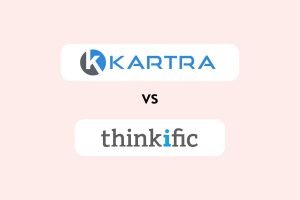
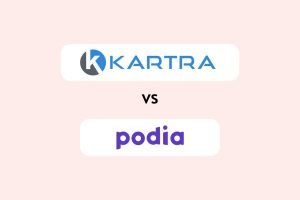
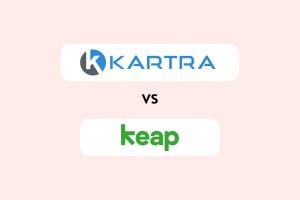
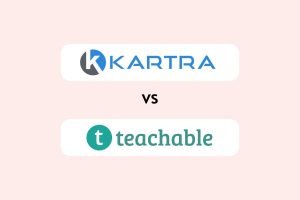
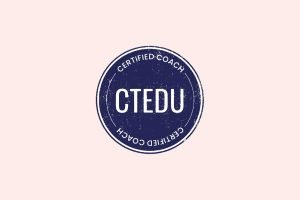






Be First to Comment